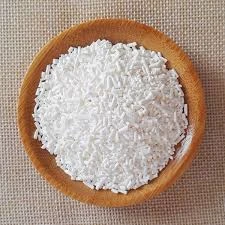
Exploring the Benefits and Uses of Thickener E407 in Food Industry
Understanding E407 The Role of Carrageenan in Food and Industry
In the realm of food additives and emulsifiers, E407, commonly known as carrageenan, holds a prominent position. Derived from certain red seaweeds, specifically the genera Chondrus, Gigartina, and Iridaea, carrageenan has found its way into various food products, cosmetics, and even pharmaceuticals due to its gelling, thickening, and stabilizing properties. This article aims to delve into the characteristics of E407, its applications, potential health concerns, and regulatory status.
What is E407 (Carrageenan)?
Carrageenan is a natural polysaccharide that is extracted from seaweed. Its diverse structural forms—kappa, lambda, and iota—allow it to be used in a wide range of products with varying textures and consistencies. Kappa carrageenan forms gels in the presence of potassium ions, making it suitable for products requiring firmness, like chocolate milk. Lambda carrageenan, on the other hand, does not gel but is an excellent thickener, commonly found in dairy products like ice cream. Iota carrageenan offers a unique combination of both properties, providing thickening and gelling effects under specific conditions.
Applications of Carrageenan
The versatility of E407 makes it a valuable ingredient in many industries
1. Food Industry Carrageenan is most widely recognized for its use in dairy products, such as yogurt and cheese, where it enhances texture and stability. It also appears in plant-based milk alternatives, sauces, and desserts. Beyond thickening, it helps prevent the separation of ingredients, providing a consistent texture that consumers expect.
2. Cosmetics and Personal Care Due to its gel-forming capabilities, carrageenan is also found in lotions, shampoos, and other beauty products. It acts as a thickening agent, ensuring that products have a desirable viscosity while also being gentle on the skin.
thickener 407

3. Pharmaceuticals Carrageenan is used in the pharmaceutical industry as an excipient, helping to deliver active ingredients in tablets or capsules and stabilizing suspensions. Its biocompatibility means it is generally safe for use in medical applications.
Health Considerations
While carrageenan is considered safe for consumption by many food safety authorities, including the European Food Safety Authority (EFSA) and the Food and Drug Administration (FDA), it has been the subject of controversy. Some studies suggest that degraded carrageenan, which may occur under certain processing conditions, could cause inflammation and gastrointestinal issues. However, the forms of carrageenan typically used in food products are higher molecular weight and are not believed to have the same negative effects.
Overall, the scientific consensus remains that carrageenan is safe when used according to regulatory standards. Nonetheless, consumer awareness and demand for transparency have led some manufacturers to seek alternatives, especially in organic and health-focused products.
Regulatory Status
E407 is approved for use in food products across many regions, including the European Union and the United States. In the EU, it is classified as a food additive, and its use is governed by stringent safety assessments. The continuous monitoring and research on carrageenan ensure that its application remains safe for consumers.
Conclusion
Carrageenan, as represented by E407, exemplifies how natural ingredients can be utilized effectively in various sectors. Its ability to act as a thickener, stabilizer, and gelling agent makes it indispensable in food production, cosmetics, and pharmaceuticals. While concerns regarding its safety do arise, ongoing research and regulatory oversight ensure its safety in accordance with modern standards. As consumers increasingly seek transparency and health-conscious options, the future of carrageenan in the food industry may evolve, prompting further innovation and adaptation. Understanding E407 helps consumers make informed choices while appreciating the complexities and benefits of food additives in their everyday products.
-
Buy High-Quality Trichloroisocyanuric Acid for Sale | TCCA 90% SupplierNewsAug.30,2025
-
Pure Sodium Dichloroisocyanurate Dihydrate | Powerful DisinfectantNewsAug.29,2025
-
Industrial Chemicals: Quality & Purity for Every IndustryNewsAug.28,2025
-
Nitrile Rubber Honoring Strict Production StandardsNewsAug.22,2025
-
Aspartame Ingredients Honoring Food Safety ValuesNewsAug.22,2025
-
Fertilizer for Balanced Plant NutritionNewsAug.22,2025
-
Cyanide Gold Processing with High Purity AdditivesNewsAug.22,2025
Hebei Tenger Chemical Technology Co., Ltd. focuses on the chemical industry and is committed to the export service of chemical raw materials.
-

view more DiethanolisopropanolamineIn the ever-growing field of chemical solutions, diethanolisopropanolamine (DEIPA) stands out as a versatile and important compound. Due to its unique chemical structure and properties, DEIPA is of interest to various industries including construction, personal care, and agriculture. -

view more TriisopropanolamineTriisopropanolamine (TIPA) alkanol amine substance, is a kind of alcohol amine compound with amino and alcohol hydroxyl, and because of its molecules contains both amino and hydroxyl. -

view more Tetramethyl Thiuram DisulfideTetramethyl thiuram disulfide, also known as TMTD, is a white to light-yellow powder with a distinct sulfur-like odor. It is soluble in organic solvents such as benzene, acetone, and ethyl acetate, making it highly versatile for use in different formulations. TMTD is known for its excellent vulcanization acceleration properties, which makes it a key ingredient in the production of rubber products. Additionally, it acts as an effective fungicide and bactericide, making it valuable in agricultural applications. Its high purity and stability ensure consistent performance, making it a preferred choice for manufacturers across various industries.





